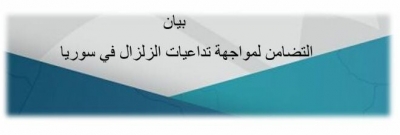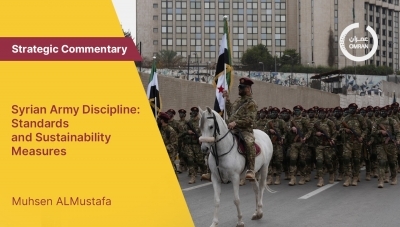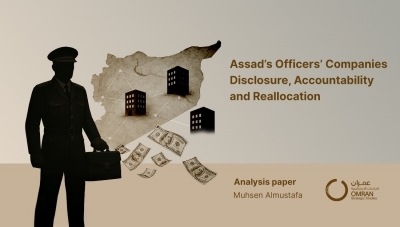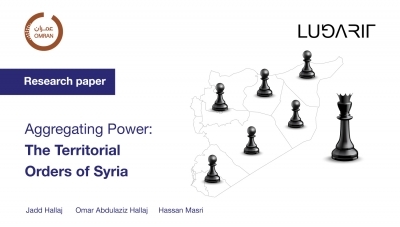10- February- 2023
The earthquake that struck southern Turkey, and northern and western Syria caused heavy casualties, exceeding thousands of dead and missing, and hundreds of thousands of displaced people, with massive destruction of infrastructure and deterioration of basic living conditions. This new shocking catastrophe exacerbated the suffering of all Syrian men and women, residents, internally displaced, or refugees, in a war-torn country that has been politically and socially fragmented and controlled by various military and security forces and dominated by conflict economies. It has become clear that the warring actors cannot meet the protracted challenges caused by the 12 years of the conflict, or cope with the earthquake's immeasurable effects. Those actors will generate further injustice and exclusion and increase the suffering of both those affected and survivors of the earthquake.
The Societal Role: Syrians have shown a high level of solidarity since the first hours of the disaster; they joined forces at home and abroad, expressing their unity in the face of the tragedies associated with the earthquake. Syrians, women and men, are in dire need of solidarity in the face of the earthquake and its direct and indirect ramifications through joint action in order to help those affected, identify priorities and options for intervention and mitigate the effects of the disaster. The priority is to coordinate and respond to reach the most affected individuals and communities and save their lives before it is too late.
Overcoming Conflict’s Polarizations: Efforts have been already made to create solidarity between civil institutions and community initiatives working in the civic space, they aim to open a new space for Syrian solidarity action, which is an urgent need to identify the sufferings and needs of Syrians, overcome the damage and help those affected, improve the effectiveness of interventions, share experiences and resources, and enhance the role of society in the potential interventions. Strengthening cross-division solidarity and overcoming political, regional, ethnic, religious, gender and other divisions that have deepened during the conflict require mobilizing the human, material and institutional resources in all regions through joint action to mitigate the damage and overcome the divisions of the conflict. Solidarity requires the advancement of civic action towards transparent and effective governance and accountability, a commitment to the ethics and principles of humanitarian work, human rights, dignity and freedoms, and an emphasis on justice and participation at all stages of activity.
The Humanitarian-Development-Response: In order to overcome the gaps and challenges associated with the relief response, it is necessary that the Syrian society takes the initiative in leading and organizing the response, producing evidence and field studies to underpin urgent interventions and make them available to all. It is also necessary to coordinate between the local communities, civic initiatives and research centres. In addition, it is essential to link relief interventions with development alternatives, as well as linking humanitarian interventions with dismantling the conflict causes and mechanisms to ensure that the effects of the disaster are overcome in a sustainable manner.
Effective International Solidarity: Despite the remarkable solidarity and cooperation of individuals and institutions at the international level, confronting the disaster requires a different role from the UN and international institutions. Humanitarian aid is insufficient without a safe space for work, fair access for all, and breaking the restrictions imposed by political and military forces. International support is crucial to overcome the catastrophe provided that the Syrian society is given a space to take the initiative in managing interventions -while focusing on commitment to interventions that are centered on the rights and freedoms of Syrians- and confronting the narrow political interests of the conflict forces by lifting restrictions on mobility and providing human and material aid across borders and regions.
Exerting Pressure on the Warring Parties: Pressure should be exerted on political and military local, regional and international forces to open internal and external conflict lines for humanitarian/development activity, to redirect military and security spending to confronting the disaster, to stop levying royalties, pillage, monopoly, and encroachment on aid and civil organizations and initiatives. The civil actors need to work and advocate to redistribute energy derivatives, food, housing, and decent living conditions to those affected by the disaster, and to put an end to hate speech and political exploitation of the suffering of Syrians.
This statement is a call for solidarity to overcome the ramifications of the catastrophic earthquake and dynamics of the Syrian war.
Signatory organizations Syrian Centre for Policy Research (SCPR) – OMRAN Center for Strategic Studies - Basmeh & Zeitooneh - Hand in Hand for Relief and Development - Baytna Syria - Multi Aid Programs (MAPs) - Ettijahat- Independent Culture - Musawa: Women’s Study Center for Equality - Local Development and Small Project Support (LDSPS).





